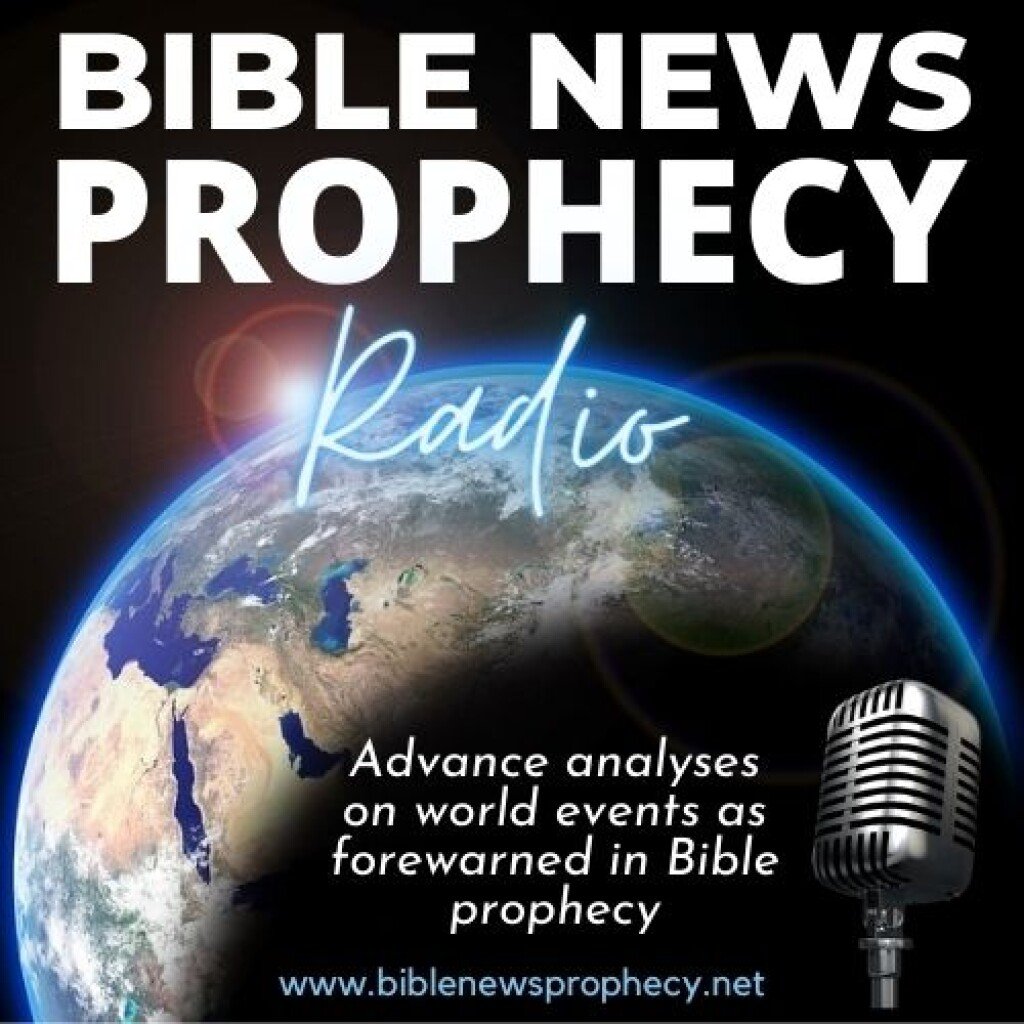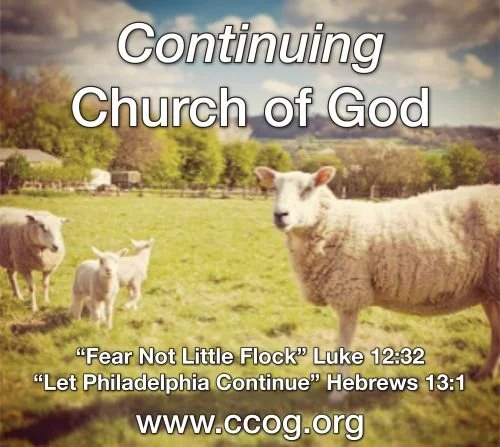Eostre: Goddess of the Dawn
Continued from part 1: Is Easter a Really Christian Holiday? Was Jesus Resurrected on a Sunday? ¿Resucitó Cristo un — Bible News Prophecy Radio
What Day Was the Resurrection?
Now which DAY OF THE WEEK was the resurrection day? The first investigators, Mary Magdalene and her companions, came to the sepulcher on the first day of the week (Sunday) very early, while it was yet dark, as the sun was beginning to rise, at dawn. (Mark 16:2; Luke 24:1; John 20:1).
Now here are the texts most people have SUPPOSED stated the resurrection was at sunrise Sunday morning. But they do not say that!
When the women arrived, the tomb was already OPEN! At that time Sunday morning while it was yet dark — JESUS WAS NOT THERE! Notice how the angel says “HE IS NOT HERE, BUT IS RISEN!” See Mark 16:6; Luke 24:3; John 20:2; Matt. 28:5-6.
Jesus was ALREADY RISEN at sunrise Sunday morning! Of course He was. He rose from the grave IN THE LATE AFTERNOON, near SUNSET!
And since we know the resurrection was just shortly prior to that Sunday morning, and that it occurred in the late afternoon of the day, we now may know THE RESURRECTION OF CHRIST OCCURRED LATE SATURDAY AFTERNOON.
The Sabbath day ended at sunset. It was late on that day, before the beginning of the first day of the week. It was not, then, a Sunday resurrection at all — it was a Sabbath resurrection!
Three days prior to Saturday afternoon is Wednesday afternoon. Hence, since Jesus was killed on a Wednesday and resurrected on a Saturday, there is no biblical reason for “Easter” to be on a Sunday. The resurrection was not on Sunday.
Some have claimed that one of the following scriptures (vs. 21) proves a Friday crucifixion and a Sunday resurrection:
13 Now behold, two of them were traveling that same day to a village called Emmaus, which was seven miles from Jerusalem. 14 And they talked together of all these things which had happened. 15 So it was, while they conversed and reasoned, that Jesus Himself drew near and went with them. 16 But their eyes were restrained, so that they did not know Him.
17 And He said to them, “What kind of conversation is this that you have with one another as you walk and are sad?”
18 Then the one whose name was Cleopas answered and said to Him, “Are You the only stranger in Jerusalem, and have You not known the things which happened there in these days?”
19 And He said to them, “What things?”
So they said to Him, “The things concerning Jesus of Nazareth, who was a Prophet mighty in deed and word before God and all the people, 20 and how the chief priests and our rulers delivered Him to be condemned to death, and crucified Him. 21 But we were hoping that it was He who was going to redeem Israel. Indeed, besides all this, today is the third day since these things happened. 22 Yes, and certain women of our company, who arrived at the tomb early, astonished us. 23 When they did not find His body, they came saying that they had also seen a vision of angels who said He was alive. 24 And certain of those who were with us went to the tomb and found it just as the women had said; but Him they did not see.”
25 Then He said to them, “O foolish ones, and slow of heart to believe in all that the prophets have spoken! 26 Ought not the Christ to have suffered these things and to enter into His glory?” 27 And beginning at Moses and all the Prophets, He expounded to them in all the Scriptures the things concerning Himself. (Luke 24:13-27)
But it does not. The strongest evidence in favor of Wednesday as the crucifixion is Jesus’ own words about being in the grave three days and three nights, plus the fact that the Sabbath He was interned prior to, was a high day. As far as the counting of three, different people use different expressions to mean things. For example, in modern times, to say something will happen next Sunday may mean tomorrow or a week from tomorrow, hence I do not believe that the “third day since” argument is adequate to discount Wednesday.
Furthermore, notice this explanation from the late Herbert W. Armstrong:
Another passage that might confuse is Luke 24:21: “… And beside all this, today is the third day since these things were done.” “These things” included all the events pertaining to the resurrection — the seizing of Jesus, delivering Him to be tried, the actual crucifixion, and, finally, the setting of the seal and the watch over the tomb the following day, or Thursday. Study verses 18-20, telling of “these things” and also Matthew 27:62-66. “These things” were not completed until the watch was set, Thursday. And the text says Sunday was the third day since these things were done. Sunday truly was the third day since Thursday. But it was not the third day since Friday, so this text could not prove a Friday crucifixion. (The RESURRECTION was NOT on Sunday, Radio Church of God, 1952)
Notice that “these things” were not limited to placing Christ in the tomb. Yet some have erroneously concluded otherwise.
Notice the following:
62 On the next day, which followed the Day of Preparation, the chief priests and Pharisees gathered together to Pilate, 63 saying, “Sir, we remember, while He was still alive, how that deceiver said, ‘After three days I will rise.’ 64 Therefore command that the tomb be made secure until the third day, lest His disciples come by night and steal Him away, and say to the people, ‘He has risen from the dead.’ So the last deception will be worse than the first.”
65 Pilate said to them, “You have a guard; go your way, make it as secure as you know how.” 66 So they went and made the tomb secure, sealing the stone and setting the guard. (Matthew 27:62-66).
The day “which followed the Day of Preparation” was a Thursday and the third day since that would be Sunday.
Even some Protestant scholars have long realized that there is biblical support that Jesus’ resurrection may have been on Saturday. Notice what one wrote in 1907:
…the Bible nowhere says or implies that Jesus was crucified and died on Friday. It is said that Jesus was crucified on “the day before the Sabbath“…Now, the Bible does not leave us to speculate which Sabbath is meant in this instance; for John tells us, in so many words, in John 19:14, that the day on which Jesus was tried and crucified was “the preparation of the Passover” (emphasis added). In other words, it was not the day before the weekly Sabbath (that is, Friday), but it was the day before the Passover Sabbath, which came that year on Thursday–that is to say, the day on which Jesus Christ was crucified was Wednesday. John makes this as clear as day… To sum it all up, Jesus died just about sunset on Wednesday. Seventy two hours later, exactly three days and three nights, at…Saturday at sunset, He arose again from the grave. (Torrey R.A. Difficulties in the Bible. Originally published 1907; Whitaker House; Updated edition, October 2003, pp. 168-169, 173).
Furthermore, see what the late Jerry Falwell, a Sunday-keeper, and others have admitted:
The Bible is actually silent on the precise moment of resurrection. Jesus’ followers came to His tomb before dawn on the first day of the week (Sunday), but they did not witness Him coming back to life. They merely found an empty tomb. Even the late Rev. Jerry Falwell, a Sunday-keeper and chancellor of Liberty University in Lynchburg, Va., agreed with that timetable, telling WND in 2001, “I personally believe He was crucified on Wednesday evening … and rose after 6 p.m. Saturday evening.” Most Christians today think Jesus died on a Friday and rose on Sunday. They point to Scriptures indicating a Sabbath day followed Jesus’ execution. But Sabbath-keepers claim it was not the weekly Sabbath of Saturday approaching. Rather, they say it was an annual Sabbath, a “high” holy day in the Hebrew calendar known as the Feast of Unleavened Bread, which supposedly occurred on a Thursday the week Jesus was killed. The Gospel of John mentions that Sabbath was the annual type. “The Jews therefore, because it was the preparation, that the bodies should not remain upon the cross on the sabbath day, (for that sabbath day was an high day,) … .” (John 19:31) In other words, Sabbatarians say there was more than one day of rest that week. Their timeline has Jesus slain on Wednesday – the day before the “high day” annual Sabbath on Thursday. They believe Jesus was in the grave for a full three days and three nights, finally arising Saturday evening, the second Sabbath of the week. The mention of “three days and three nights” is important for many, as Jesus used that phrase to prove His divine identity: “For as Jonah was in the belly of the great fish for three days and three nights, so I, the Son of Man, will be in the heart of the earth for three days and three nights.” (Matthew 12:40, New Living Translation) (Kovac, Joe. ‘Deception’: Christians war over worship day. Posted: March 16, 2008 5:24 pm Eastern. WorldNetDaily).
Hence, some do know the truth. And it is not just some Protestants. It is interesting to note that even into the 19th century, there was a ceremony in Rome that indicated a Saturday resurrection. Notice:
This ceremony is thus graphically described by the authoress of Rome in the 19th Century:”…the Pope himself, who walked beneath a crimson canopy, with his head uncovered, bearing the Host in a box; and this being, as you know, the real flesh and blood of Christ, was carried from the Sistine chapel through the intermediate hall to the Paulina chapel, where it was deposited in the sepulchre prepared to receive it beneath the altar…I never could learn why Christ was to be buried before He was dead, for, as the crucifixion did not take place till Good Friday, it seems odd to inter Him on Thursday. His body, however, is laid in the sepulchre, in all the churches of Rome, where this rite is practised, on Thursday forenoon, and it remains there till Saturday at mid-day, when, for some reason best known to themselves, He is supposed to rise from the grave amidst the firing of cannon, and blowing of trumpets, and jingling of bells…*” * The above account referred to the ceremonies as witnessed by the authoress in 1817 and 1818. It would seem that some change has taken place since then, caused probably by the very attention called by her to the gross anomaly mentioned above; for Count Vlodaisky, formerly a Roman Catholic priest, who visited Rome in 1845, has informed me that in that year the resurrection took place, not at mid-day, but at nine o’clock on the evening of Saturday. This may have been intended to make the inconsistency between Roman practice and Scriptural fact appear somewhat less glaring. Still the fact remains, that the resurrection of Christ, as celebrated at Rome, takes place, …on the day of Saturn…(Hislop, Alexander. Two Babylons. Loizeaux, Neptune (NJ), Second American Edition, 1959–originally expanded in 1858).
Whether the above ceremony still exists, this writer does not know. But it is interesting that at least one Roman ceremony involving the pope acknowledged a Saturday resurrection that late. Perhaps, this ceremony was originally adopted by Rome partially because the early Romans knew that Jesus was actually resurrected on Saturday.
Irrespective of that celebration, it is clear that there is evidence outside the Bible that among those that professed Christ, there were some who understood that the crucifixion was on a Wednesday and the resurrection was on a Saturday.
Here is a link to our sermon video: Is Easter a Really Christian Holiday?
Some items for future interest may include the following:
Did Early Christians Celebrate Easter? If not, when did this happen? Where did Easter come from? What do scholars and the Bible reveal? Here is a link to a video titled Why Easter?
The History of Early Christianity Are you aware that what most people believe is not what truly happened to the true Christian church? Do you know where the early church was based? Do you know what were the doctrines of the early church? Is your faith really based upon the truth or compromise?
Should You Observe God’s Holy Days or Demonic Holidays? This is a free pdf booklet explaining what the Bible and history shows about God’s Holy Days and popular holidays. A related sermon is Which Spring Days should Christians observe?
Keeping Passover and the Days of Unleavened Bread How should Christians keep Passover, especially if they are by themselves. Why does the Church of God not require lambs for Passover? How does one keep the Days of Unleavened Bread? For a step-by-step video for Christians to keep it, check out CCOG Passover Service. Here is a link to a related article in the Spanish language: Guardando la Pascua y los Días de los Panes sin Levadura.
Preparing for Passover The Apostle Paul taught that Christians should examine themselves prior to taking Passover. This YouTube video sermon gives suggestions on how to prepare.
Passover and the Early Church Did the early Christians observe Passover? What did Jesus and Paul teach? Why did Jesus die for our sins? There is also a detailed YouTube video available titled History of the Christian Passover.
Beliefs of the Original Catholic Church: Could a remnant group have continuing apostolic succession? Did the original “catholic church” have doctrines held by the Continuing Church of God? Did Church of God leaders uses the term “catholic church” to ever describe the church they were part of? Here are links to related sermons: Original Catholic Church of God?, Original Catholic Doctrine: Creed, Liturgy, Baptism, Passover, What Type of Catholic was Polycarp of Smyrna?, Tradition, Holy Days, Salvation, Dress, & Celibacy, Early Heresies and Heretics, Doctrines: 3 Days, Abortion, Ecumenism, Meats, Tithes, Crosses, Destiny, and more, Saturday or Sunday?, The Godhead, Apostolic Laying on of Hands Succession, Church in the Wilderness Apostolic Succession List, Holy Mother Church and Heresies, and Lying Wonders and Original Beliefs. Here is a link to that book in the Spanish language: Creencias de la iglesia Católica original.
The Passover Plot What was the first Passover plot? Which plots have Islam and the Greco-Roman faiths perpetuated about Passover? A sermon video of related interest is The Passover Plots, Including Easter.
Melito’s Homily on the Passover This is one of the earliest Christian writings about the Passover. This also includes what Apollinaris wrote on the Passover as well. Here is a related sermon, also titled Melito’s Homily on the Passover.
Is Lent a Christian Holiday? When did it originate? What about Ash Wednesday? If you observe them, do you know why?
What Happened in the Crucifixion Week? How long are three days and three nights? Was Palm Sunday on a Saturday? Did Jesus die on “Good Friday”? Was the resurrection on Sunday? Do you really know? Who determined the date of Easter? (Here is a related link in Spanish/español: ¿Murió Jesús un día miércoles o un viernes?)
What Do Roman Catholic Scholars Actually Teach About Early Church History? Although most believe that the Roman Catholic Church history teaches an unbroken line of succession of bishops beginning with Peter, with stories about most of them, Roman Catholic scholars know the truth of this matter. This eye-opening article is a must-read for any who really wants to know what Roman Catholic history actually admits about the early church.
Hope of Salvation: How the Continuing Church of God Differs from Protestantism The CCOG is NOT Protestant. This free online book explains how the real Church of God differs from mainstream/traditional Protestants. Several sermons related to the free book are also available: Protestant, Baptist, and CCOG History; The First Protestant, God’s Command, Grace, & Character; The New Testament, Martin Luther, and the Canon; Eucharist, Passover, and Easter; Views of Jews, Lost Tribes, Warfare, & Baptism; Scripture vs. Tradition, Sabbath vs. Sunday; Church Services, Sunday, Heaven, and God’s Plan; Seventh Day Baptists/Adventists/Messianics: Protestant or COG?; Millennial Kingdom of God and God’s Plan of Salvation; Crosses, Trees, Tithes, and Unclean Meats; The Godhead and the Trinity; Fleeing or Rapture?; and Ecumenism, Rome, and CCOG Differences.
Early Church History: Who Were the Two Major Groups Professed Christ in the Second and Third Centuries? Did you know that many in the second and third centuries felt that there were two major, and separate, professing Christian groups in the second century, but that those in the majority churches tend to now blend the groups together and claim “saints” from both? “Saints” that condemn some of their current beliefs. Who are the two groups?
Where is the True Christian Church Today? This free online pdf booklet answers that question and includes 18 proofs, clues, and signs to identify the true vs. false Christian church. Plus 7 proofs, clues, and signs to help identify Laodicean churches. A related sermon is also available: Where is the True Christian Church? Here is a link to the booklet in the Spanish language: ¿Dónde está la verdadera Iglesia cristiana de hoy? Here is a link in the German language: WO IST DIE WAHRE CHRISTLICHE KIRCHE HEUTE? Here is a link in the French language: Où est la vraie Église Chrétienne aujourd’hui?
Continuing History of the Church of God This pdf booklet is a historical overview of the true Church of God and some of its main opponents from Acts 2 to the 21st century. Related sermon links include Continuing History of the Church of God: c. 31 to c. 300 A.D. and Continuing History of the Church of God: 4th-16th Centuries and Continuing History of the Church of God: 17th-20th Centuries. The booklet is available in Spanish: Continuación de la Historia de la Iglesia de Dios, German: Kontinuierliche Geschichte der Kirche Gottes, French: L’Histoire Continue de l’Église de Dieu and Ekegusii Omogano Bw’ekanisa Ya Nyasae Egendererete.
Holy Day Calendar This is a listing of the biblical holy days through 2033, with their Roman calendar dates. They are really hard to observe if you do not know when they occur 🙂 In the Spanish/Español/Castellano language: Calendario de los Días Santos. In Mandarin Chinese: 何日是神的圣日? 这里是一份神的圣日日历从2013年至2024年。.
LATEST AUDIO NEWS REPORTS
LATEST BIBLE PROPHECY INTERVIEWS






